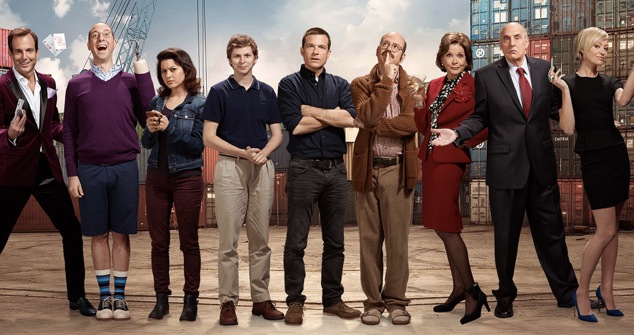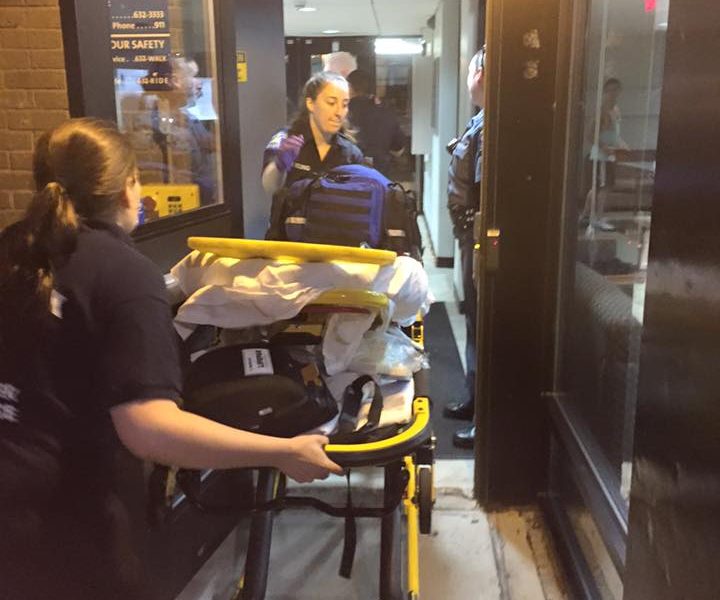It’s official. New episodes of the cult classic comedy Arrested Development will grace the Netflix binge-watching experience by next summer. As a big fan of the Bluth family’s misadventures, I’ve been anticipating this continuation of season four’s uncharacteristically dark, silent ending.
These days, it’s always a relief to hear that AD isn’t dead, especially since its future is perpetually uncertain. However, I’ve felt my share of discontent with the latest installment.
Since its untimely broadcast demise in 2006, after only three seasons, many adoring fans were dying to know what would become of it. The last second of season three teasing the possibility of a film left audiences insatiably hanging for seven years (or about two if you binged the DVDs in high school like I did). When we could finally know what became of the Bluths in a new Netflix-exclusive season, it was finally time to see if this show could keep to its acclaimed comedic reputation. The results—while well-received critically—weren’t entirely up to normal Bluth Company standards.
The major charm behind AD’s early years was the variety of hilarious situations jam-packed into every episode. While Michael and his son George-Michael fought over the latter’s ethics teacher, Lucille began learning to live with her newly-arrived Korean son that she forgot she adopted. The cast as a family working in tandem to generate laughs was original and endlessly entertaining. It was always a treat to see each Bluth off in their own awkward situations and seeing how these stories would eventually interact. While season four still followed this format, it took a questionable approach.
This time around, every episode concentrated on a single Bluth coping with the aftermath of their public disintegration, with family interactions either too minimal or too subtle to notice or simply non-existent. Suddenly, this cast so used to leaning on each other had to stretch their stories across 25-40 minutes all by themselves. Unfortunately, this “panned-out story” plan didn’t exactly pan out. While Will Arnett, a seasoned comedy veteran, certainly managed on his own as GOB, younger stars like Alia Shawkat as Maeby saw far less interesting stories. Overall, we received a strange disjointed comedy with some episodes being remarkably funny and others being sluggish and dull.
I’ve seen fans rant and rave about how this botched a once-pristine masterpiece. More dramatic disappointees will even go so far as to deny its canon to its predecessors. I’m no avid hater of the fourth season, but even I could see this considerable dip in quality when it came to this ensemble cast being split up. I’m sure the turbulent schedules of the actors was no help either, as some Bluths got more concentration than others while others simply had no time to be in it (see Tony Hale in VEEP. Seriously, he’s great). The show returning after a seven-year hiatus was already enough to make fans wonder if it could still talk the talk, but returning with a completely different format almost felt like making a huge mistake. But I’m pretty optimistic when it comes to AD, so I don’t necessarily see this lackluster season as a bad thing. If anything, it’s an excellent precursor for what’s to come.
It’s almost ironic that the Bluths hit hard(er) times while split up in a season for a show that has seen better days. Michael was willing to resort to sleeping with a family frenemy for money, Tobias and Maeby both accidentally became registered sex offenders and George-Michael’s silly app blew up into an enormous scam that he stumbled into the center of. Yes, for a wealthy family who lost everything, they somehow managed to make their lives even worse. That’s what makes this and any future season of AD potentially brilliant.
With season four, we’ve seen proof that each Bluth is a hopeless disaster when separated. Together…well, they’re just one big hopeless disaster, but they’re still together. Because aside from breakfast, the most important thing to the Bluths should be family, which is something they need to remember in season five. Utilizing the meta-humor that the show is known for, the statistically least entertaining season serves as a proper catalyst for any continuation, declaring “We know this doesn’t work, so we’re gonna work on it.”
Of course, I can say none of this definitively. For all we know, next year’s episodes might not live up to this theory. Maybe the restructured version of season four will be better than the original product, become the best season and completely debunk my understanding. Regardless, I still have hope for the Bluths coming together once more and delivering the laughs they once doled out in spades. For a show that knows itself so well, I’ll remain excited to see how they keep it all together.




Comments are closed.